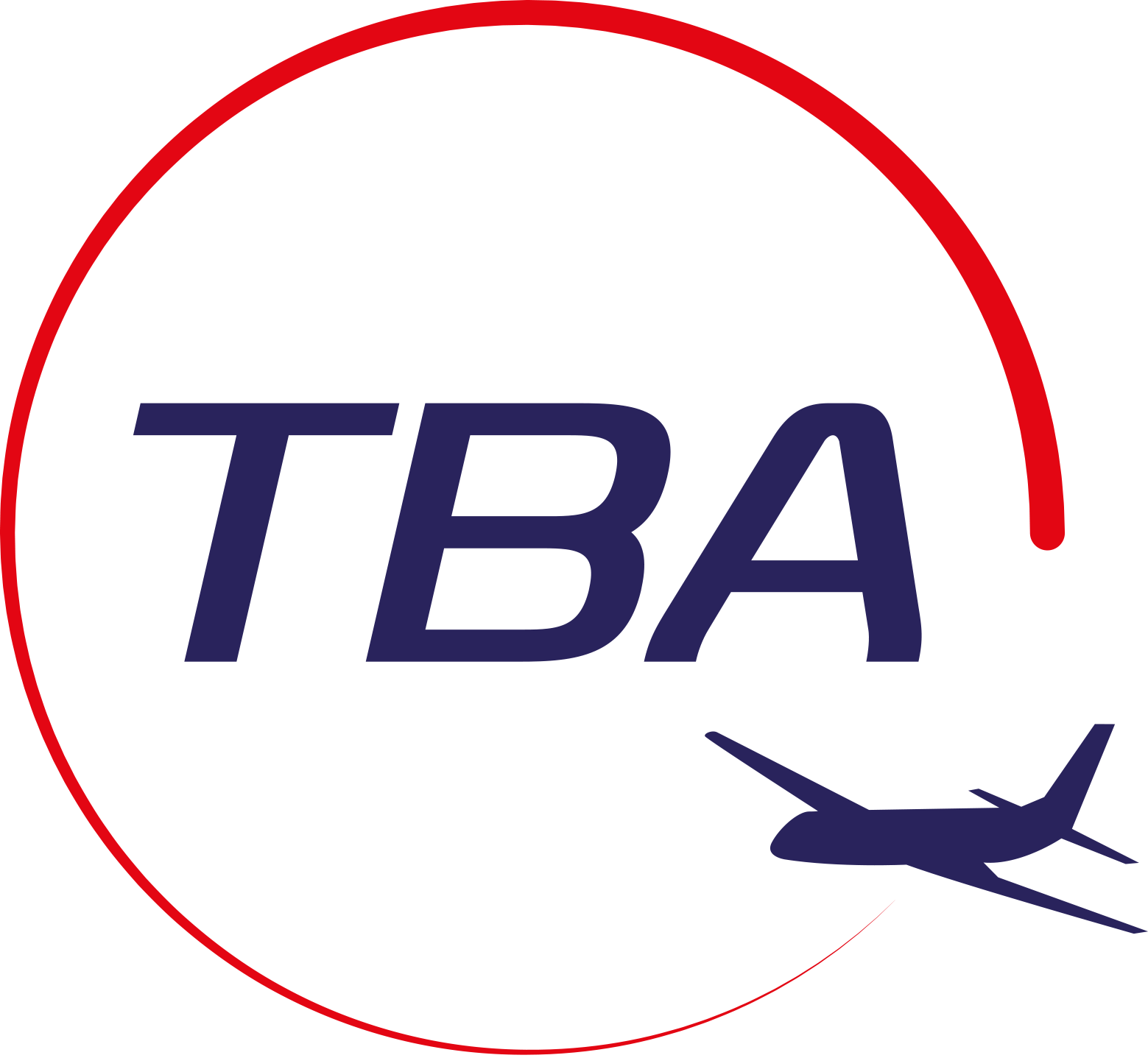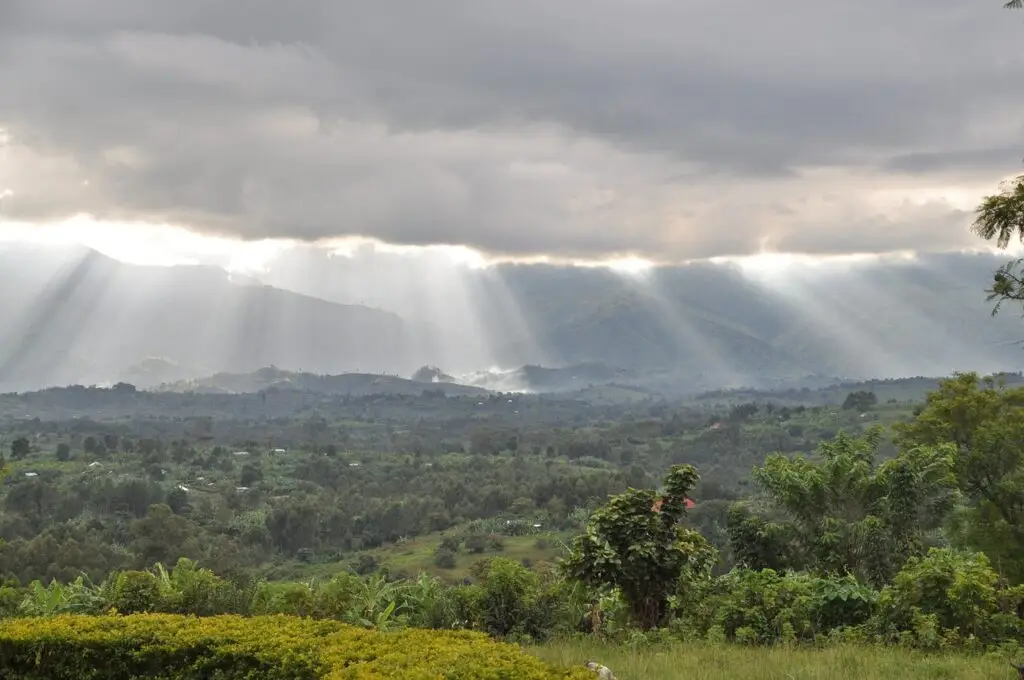
Research and knowledge are the first steps for the Democratic Republic of Congo Travel Business Assistance. Here is a fact file for the Democratic Republic of Congo to get you started. Contact us if you are looking to start a business in or expand your market to the Democratic Republic of Congo. We have consultants ready to help you on the ground in the Democratic Republic of Congo.
Make your international ventures a breeze – Schedule your complimentary consultation call with Travel Business Assistance today.
Basic Facts
Origin of the name: The name Congo has origins in the colonial period, when Europeans identified the Congo River with the kingdom of the Kongo people, who live near its mouth. From 1971 to 1997 the country was officially the Republic of Zaire, a change made by then ruler General Mobutu Sese Seko to give the country what he thought was a more authentic African name. “Zaire” is a variation of a term meaning “great river” in local African languages; like the country’s current name, it refers to the Congo River, which drains a large basin that lies mostly in the republic.
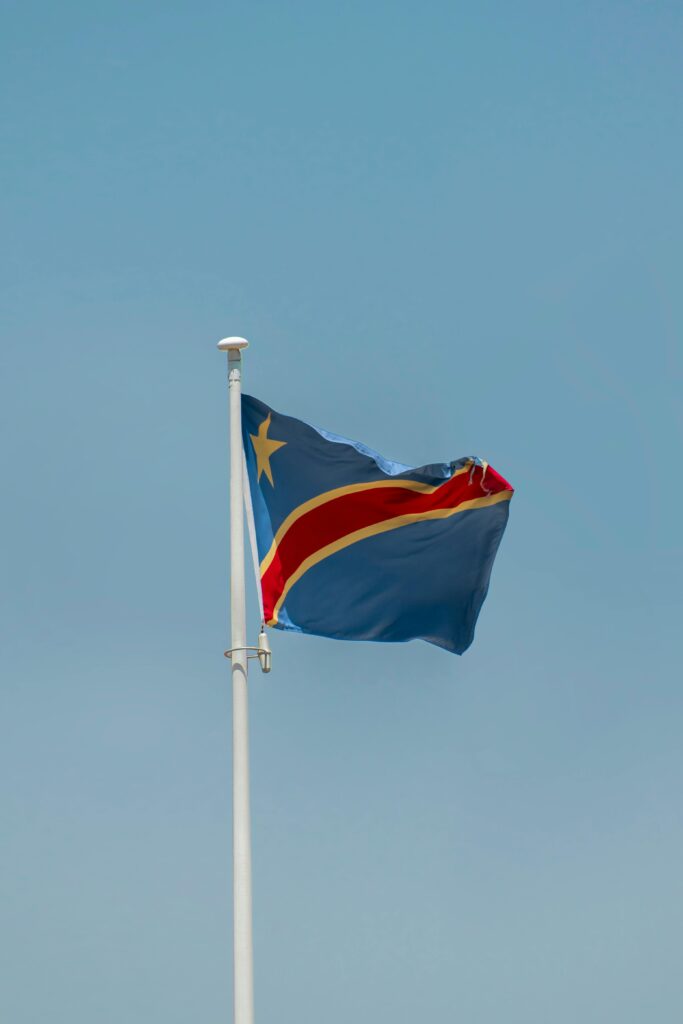 History & Independence: The geographical area now known as the Democratic Republic of the Congo was populated as early as 90,000 years ago. Bantu peoples reached Central Africa at some point during the first millennium BC, then gradually started to expand southward. The Bantu expansion was complete by the 10th century. Belgian exploration and administration took place from the 1870s until the 1920s. It was first led by Henry Morton Stanley, who undertook his explorations under the sponsorship of King Leopold II of Belgium. In May 1960, a growing nationalist movement, the Mouvement National Congolais led by Patrice Lumumba, won the parliamentary elections. Lumumba became the first Prime Minister of the Republic of the Congo. The Belgian Congo achieved independence on 30 June 1960
History & Independence: The geographical area now known as the Democratic Republic of the Congo was populated as early as 90,000 years ago. Bantu peoples reached Central Africa at some point during the first millennium BC, then gradually started to expand southward. The Bantu expansion was complete by the 10th century. Belgian exploration and administration took place from the 1870s until the 1920s. It was first led by Henry Morton Stanley, who undertook his explorations under the sponsorship of King Leopold II of Belgium. In May 1960, a growing nationalist movement, the Mouvement National Congolais led by Patrice Lumumba, won the parliamentary elections. Lumumba became the first Prime Minister of the Republic of the Congo. The Belgian Congo achieved independence on 30 June 1960
Government: Since the July 2006 elections, the country is led by a semi-presidential, strongly-decentralized state. The executive at the central level, is divided between the President, and a Prime Minister appointed by him/her from the party having the majority of seats in Parliament.
Official Language: French is the official language of the DR Congo. It is culturally accepted as the lingua franca.
Indigenous Languages: Approximately 242 languages are spoken in the country, of which four have the status of national languages: Kituba (Kikongo), Lingala, Tshiluba, and Swahili.
Population: Estimations of the DR Congo population are to be over 111 million as of 2023. Between 1950 and 2000, the country’s population nearly quadrupled from 12.2 million to 46.9 million.
Time Zone: There are two different time zones in the DR Congo. Countries with a large distance from west to east are often divided into two or more time zones to adjust daytimes to the position of the sun. Kinshasa – UTC+01:00 (West Africa Time) and Lubumbashi UTC+02:00 (Central Africa Time)
Climate: Most of the geography corresponds with the Equatorial climate, Monsoon climate, and Tropical Savanah climate type. Temperatures are high (annual average for Yangambi 24.6°C), humidity is high and rains fall throughout the year averaging between 1,600 mm and 2,000 mm annually. The country’s tropical climate zones in the north and south of the equatorial zone experience more seasonal variability, with distinct dry (April to October) and rainy (November to March) seasons.
Borders: DR Congo is bounded to the north by the Central African Republic and South Sudan; to the east by Uganda, Rwanda, Burundi, and Tanzania; to the southeast by Zambia; and to the southwest by Angola. To the west are the country’s short Atlantic coastline, the Angolan exclave of Cabinda, and Republic of Congo (Brazzaville).
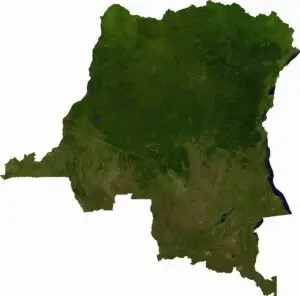 Size: At 2,3 million square kilometers (slightly less than one-fourth the size of the U.S.), DR Congo is the second largest country in the African continent (after Algeria) and covers a land area larger than the Spain, France, Germany, Sweden, and Norway combined.
Size: At 2,3 million square kilometers (slightly less than one-fourth the size of the U.S.), DR Congo is the second largest country in the African continent (after Algeria) and covers a land area larger than the Spain, France, Germany, Sweden, and Norway combined.
Religion: Christianity is the predominant religion in the DR Congo, with Catholicism and Protestantism being its main denominations. The DR Congo is a secular nation and freedom of religion is enshrined in its constitution. As of 2021, the US State Department reported that more than 95% of the population is affiliated with Christian denominations (of which nearly half are Roman Catholic, nearly half are Protestant, with a small number of Jehovah’s Witnesses, Mormons and Greek Orthodox), with the remaining less than 5% following other non-Christian religions (Muslims, Baháʼís, Jews and indigenous religions).
Currency: The national currency in DR Congo, the Congolese Franc (CDF), was created in 1997. The country is highly dollarized, and U.S. dollars are accepted as cash alongside the CDF for virtually all transactions. The U.S. dollar is used in parallel in the major cities of the DR congo to pay for certain commodities worth five dollars or more.
Congolese Franc is trading as: 1 US Dollar (USD) currently about 2,460 Congolese Francs (CDF) (09 August 2023) and 1 GBP currently about 3,134.52 Congolese Francs (CDF) (09 August 2023)
https://www.oanda.com/currency-converter/en/?from=CDF&to=USD&amount=2460
https://www.oanda.com/currency-converter/en/?from=CDF&to=GBP&amount=3134.52
History and Key Events
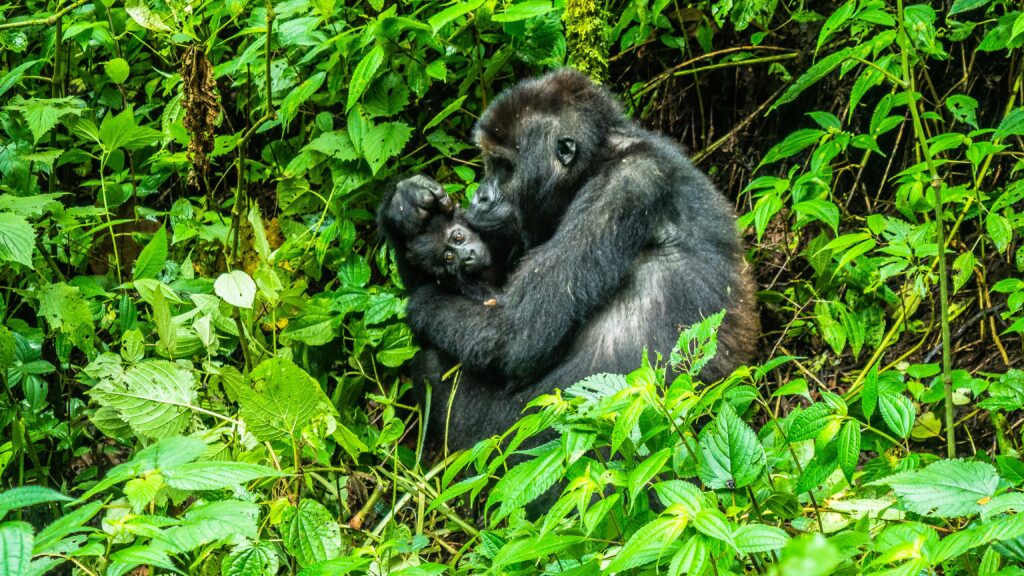
Precolonial Era
· 1200s – Rise of Kongo empire, centered in modern northern Angola and including extreme western Congo and territories round lakes Kisale and Upemba in central Katanga (now Shaba).
· 1482 – Portuguese navigator Diogo Cao becomes the first European to visit the Congo; Portuguese set up ties with the king of Kongo.
· 16th-17th centuries – British, Dutch, Portuguese and French merchants engage in slave trade through Kongo intermediaries.
· 1870s – Belgian King Leopold II sets up a private venture to colonise Kongo.
· 1874-77 – British explorer Henry Stanley navigates Congo River to the Atlantic Ocean.
Colonial Era
· 1879-87 – Leopold commissions Stanley to establish the king’s authority in the Congo basin.
· 1884-85 – European powers at the Conference of Berlin recognise Leopold’s claim to the Congo basin.
· 1955 – Belgian Professor Antoin van Bilsen publishes a “30-Year Plan” for granting the Congo increased self-government.
· 1959 – Belgium begins to lose control over events in the Congo following riots in Leopoldville (now Kinshasa).
Post-independence
· 1960 June – Congo becomes independent with Patrice Lumumba as prime minister and Joseph Kasavubu as president.
· 1965 – Army chief Joseph Mobutu seizes power.
· 1971 – Joseph Mobutu renames the country Zaire and himself Mobutu Sese Seko; Katanga becomes Shaba and the river Congo becomes the river Zaire.
· 1997 May – Rebels, aided principally by Rwanda, capture the capital, Kinshasa; Zaire is renamed the DR Congo; Laurent-Desire Kabila installed as president.
· 2001 January – Death of President Laurent Kabila. Joseph Kabila succeeds his father.
· 2002 January – Eruption of Mount Nyiragongo devastates much of the city of Goma.
· 2006 February – New constitution comes into force; new national flag is adopted.
· 2007 September – Major outbreak of the deadly Ebola virus.
· 2011 November – Presidential and parliamentary elections. Mr Kabila gains another term.
· 2019 January – Officials declare opposition candidate Felix Tshisekedi the winner of December’s presidential election.
Democratic Republic of Congo Food
The forests and savannahs of the DR Congo offer an immense variety of species of animals and birds, and the lakes and rivers teem with fish, while the vegetation offers a rich array of vegetables and fruits that is the culinary delight of the nearly 450 ethnic groups in this country of about 100 million inhabitants.
This cultural variety associated with the biodiversity of the country opens up an impressive field of gastronomical possibilities; each region has its native species of plants and animals that locals can cook using their own cultural and historical sensibilities.
Food habits are often linked to the region of origin; fish is a staple food for those living on the rivers, meat-heavy dishes for Congolese living in tropical savannah regions, while those living in forested tropical areas will primarily eat vegetarian food.
It would not be possible to describe all the gastronomical diversity of the DR Congo in the context of this article, but we can list the below most popular dishes.Liboke It is a dish generally composed of boiled fish with tomato, salt, and chili and wrapped in banana leaves or other wild plants, which will imbue the fish with their aromas. Everything is then put on a grill. Adding other spices, such as garlic and celery, enhances the flavor.
Fufu is one of—if not the—staple food par excellence of the Congo. From north to south, from east to west, fufu is present on all Congolese tables. There are two main types: corn Fufu and cassava Fufu.
Chikwange (Kwanga) is also made from cassava, but its preparation is more complex. Its preparation time is quite long; it may take one to two weeks. You have to soak the cassava in water for several days before preparing it and letting it drain for another two or three days before wrapping it in banana leaves and boiling it for a good hour.
Mbika This is a type of flour produced by grinding squash seeds. It’s often used to encase the food it’s cooked with, creating a wrapping around the dish.
Pondu is one of the most popular dishes throughout the country. The dish is made using prepared cassava leaves that are cooked in a pot, with or without spices.
Ndakala is a small dried fish also nicknamed “1000 poissons”. They can be fried in oil with a bit of chili and savored with fufu or Chikwange. Ndakala can also be mixed with vegetables of all kinds, and bathed in tomato sauce.
Lituma It looks like Fufu but consists of plantains that are boiled and then peeled and pounded. At this stage, spices can be added to the paste for added flavor. Lituma is highly prized by populations originating from the equatorial zones of the central basin.
Mayebo (Mushrooms) One of the delicacies of Congolese cuisine is Mayebo: mushrooms of different species, fresh or dried, which can be prepared in tomato sauce or palm oil as well as mixed with vegetables, prepared in broth.
Economy
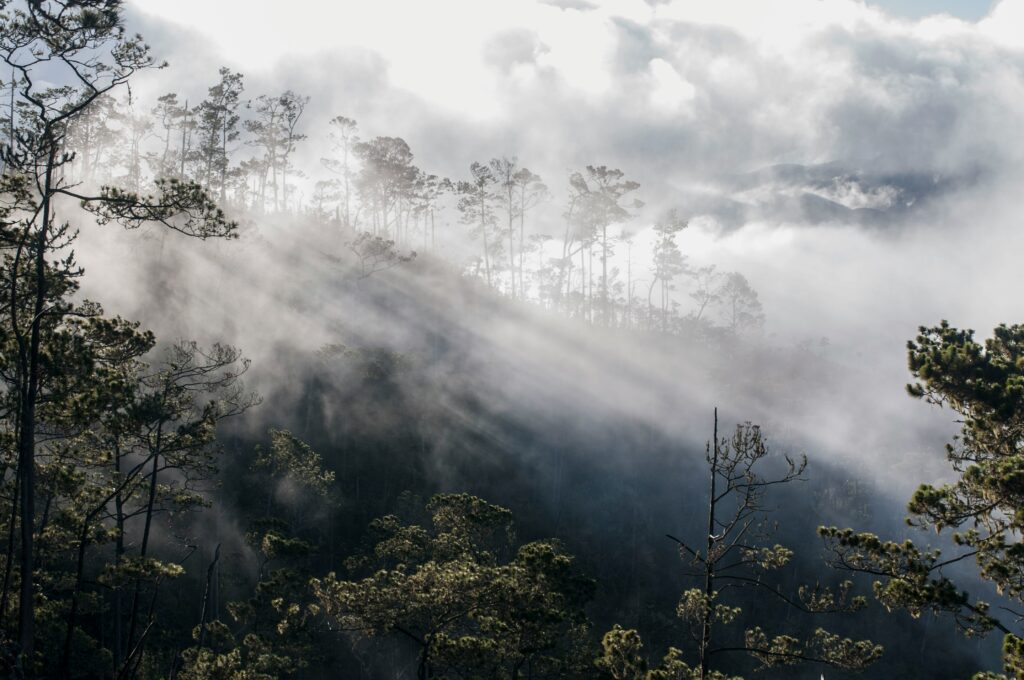
The DR Congo’s rich endowment of natural resources – 197 million acres of arable land and over 1,100 minerals and precious metals – large population, and strategic location in Central Africa make it a potentially rewarding market investors, however 70 percent of its population lives on less than one dollar a day and the DR Congo’s commercial and investment climate remains challenging.
Doing Business in Democratic Republic of Congo
Ease of Doing Business Index Scores
Overall score: 36.2 (2020)
Starting a business score: 91.6 (2020)
Trading across Borders score: 3.5 (2020)
Enforcing Contracts score: 33.3 (2020)
Legal System: The DR Congo is a civil law country, and the main provisions of its private law can be traced to the Napoleonic Civil Code. The general characteristics of the Congolese legal system are similar to those of the Belgian legal system, as the DR Congo largely received its law from its Belgian colonialists.
Company creation procedures:
- Check company name at the “Guichet Unique de la Création d’Entreprise” (Business founders can verify the company name at the Registry free of charge)
- Register with the Commercial Registry, the tax administration (Direction Générale des Impots), the National Institute for Social Security (INSS) and declare the establishment of the company with the Ministry of Labor
- Deposit the capital amount in the bank
- Declare the establishment of the company with the National Office of Employment (l’Office National de l’Emploi, ONEM).
National Investment Promotion Agency
In accordance with the texts governing this institution, the missions assigned to this Agency are the following:
- Promotion of the positive image of the DR Congo;
- Promotion of specific investment opportunities;
- Advocacy for the improvement of the business climate in the country (after-care);
- Administrative support for investors who decide to establish or expand their economic activities on the national territory.
ANAPI’s promotional activities as described above affect all sectors of economic activities, amongst others: Agriculture – Agro-industry – Livestock farming – Fishing – Manufacturing Industries – Hotels and Restaurants – Buildings and public works – Social housing – Wood and forestry – Air, road, sea and river transport – Telecommunications – Information Technology – Energy – Textile – Miscellaneous services – Mining, Banking and Insurance (for advice)
Regarding the approval or admission of projects to the Investment Code advantages, projects in the mining, banking and insurance sectors are not eligible and consequently, ANAPI intervenes only to give its technical opinions.
Why invest in DR Congo?
The DR Congo, about the size of Western Europe, is the largest country in Sub-Saharan Africa (SSA). DR Congo is endowed with exceptional natural resources, including minerals such as cobalt and copper, hydropower potential, significant arable land, immense biodiversity, and the world’s second-largest rainforest.
A study conducted by a pan-African rating agency known as Bloomfield showed that the DR Congo has improved its business climate. The grade this year has improved by 40 basis points from 5.1 to 5.5 on the scale of ten and that represents a moderate risk on their scale with regard to that methodology.
Investment Opportunities:
- Mining potential: The DR Congo’s enormous mining wealth attracts top mining companies from around the world. The boom in demand for electric vehicle and electronics batteries has multiplied the demand for cobalt, coltan, and lithium. The mining industry, abundant in cobalt, copper, diamonds, and gold, presents avenues for exploration, extraction, and value-added processing projects.
- Energy is another sector with tremendous potential for renewable power sources such as hydroelectricity and renewable solar. The DR Congo’s vast hydropower potential offers opportunities in energy generation and infrastructure development.
- Agriculture is a neglected sector as the DR Congo has large tracts of underexploited land. The agricultural sector holds potential for investment in commercial farming, agribusiness, and food processing.
- Infrastructure: Telecommunications is a largely privatized and still growing industry. The need for roads and buildings means numerous contracting opportunities. The need for transport creates an enormous market for vehicles, boats, and engines.
Additionally, the country’s rich biodiversity and tourism attractions create prospects for eco-tourism ventures. However, investors must navigate challenges such as political instability, security risks, and weak infrastructure. The government’s commitment to economic reforms, including improving governance and attracting foreign investment, makes the DR Congo an enticing but complex investment destination.
Key Infrastructure Projects in DR Congo
Inga hydroelectric power project: The Inga dams are a complex of hydro power plants and dams connected to one of the largest waterfalls in the world, the Inga Falls. They are located in the DR Congo, on the Congo River in the Western Province of Bas-Congo, near the city of Matadi. The Grand Inga complex could become the largest hydroelectric power generating facility in the world (planned 45 GW), if it is completed. According to their Congolese and international promoters, Grand Inga “has the potential to transform Africa’s power sector”.
Banana Port: In February 2022, DP World and the DR Congo entered into a partnership for the construction of Banana Port. It will be a modern, world class port and undoubtedly a game changer for the DR Congo. Once complete, it will attract more direct calls from larger vessels travelling from Asia and Europe, greatly enhancing the country’s access to international markets and global supply chains. The port is being developed at Banana, along the country’s 37km coastline on the Atlantic Ocean in Kongo Central province and following its completion, will provide significant cost and time savings that will boost the country’s trade.
Health
A passport, visa, and proof of vaccination against Yellow Fever are required for entry into DR Congo.
It is strongly recommended that you visit a travel vaccination clinic and get other vaccinations and a prophylaxis for malaria.
COVID-19
International travel to DR Congo is permitted. There are currently no quarantine or health testing requirements. Transmission of COVID-19 is unknown in DR Congo.
Immigration
Visit the Embassy of the DR Congo website and or the nearest DR Congo embassy or consulate for tourist visa information and document requirements for work visas.
E-visas are not available for DR Congo.
Facts Unique to DR Congo
Only in DR Congo: Okapi and Bonobos are endemic DR Congo mammal species; they are not found anywhere else in their natural habitat. Although the okapi has striped markings reminiscent of zebras, it is most closely related to the giraffe. The bonobo, also historically called the pygmy chimpanzee (less often the dwarf chimpanzee or gracile chimpanzee), is an endangered great ape.
Sapeurs: are those who are followers of a fashion culture in Brazzaville and Kinshasa, and are part of La Sape, ‘Société des Ambianceurs et des Personnes Élégantes’ (Society of Ambiance-Makers and Elegant People). Most are day labourers, taxi drivers or gardeners, but as Sapeurs they wear dapper designer suits and take great pride in their appearance.
Congolese Rumba: UNESCO has added Congolese rumba to its intangible heritage list, sparking enthusiasm among music and dance fans in both the DR Congo and the Republic of the Congo. “The rumba for Congolese represents their whole life and the history of Congo, as all its biggest historical developments were accompanied by this music.”
The Democratic Republic of Congo Travel Business Assistance
Are you planning to move your business to The Democratic Republic of Congo or open up The Democratic Republic of Congo as a new market? Perhaps there is a conference in The Democratic Republic of Congo you need to attend and you need some help. We are here for your The Democratic Republic of Congo Travel Business Assistance.
